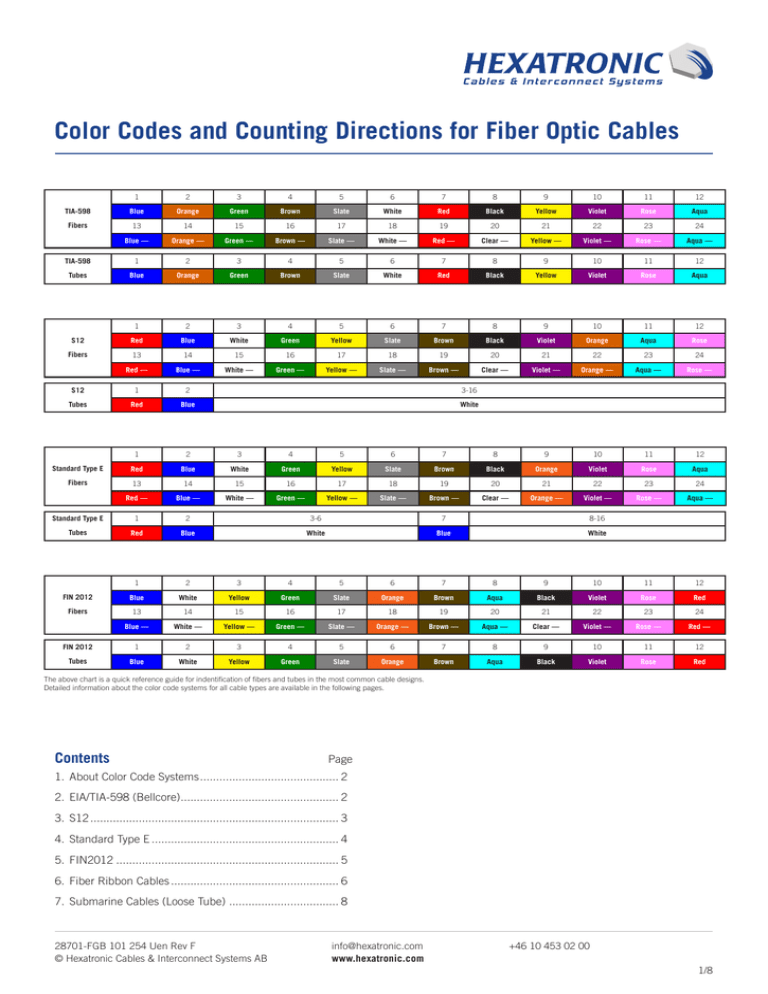Fiber optic cables are essential components in modern communication systems. They are used to transmit data over long distances at high speeds. One of the key characteristics of fiber optic cables is the color coding of the fibers. The fiber optic color chart is a standardized system that helps technicians identify and manage the fibers within a cable.
The fiber optic color chart assigns specific colors to individual fibers within a cable. This color coding system helps technicians quickly identify different fibers, which is crucial for proper installation, maintenance, and troubleshooting. Each fiber optic cable contains multiple fibers, and the color coding ensures that each fiber is easily distinguishable from the others.
Fiber Optic Color Chart
Interpreting the Fiber Optic Color Chart
When working with fiber optic cables, it is important to understand how to interpret the color coding system. In most cases, the colors are assigned based on the fiber’s position within the cable. For example, the first fiber in a cable may be colored blue, while the second fiber may be colored orange. By referencing the fiber optic color chart, technicians can easily identify and work with the fibers in a cable.
Conclusion
The fiber optic color chart is a valuable tool for anyone working with fiber optic cables. By understanding and following the color coding system, technicians can ensure proper installation and maintenance of fiber optic systems. Whether you are a seasoned professional or just starting out in the field, having a good grasp of the fiber optic color chart is essential for success.
